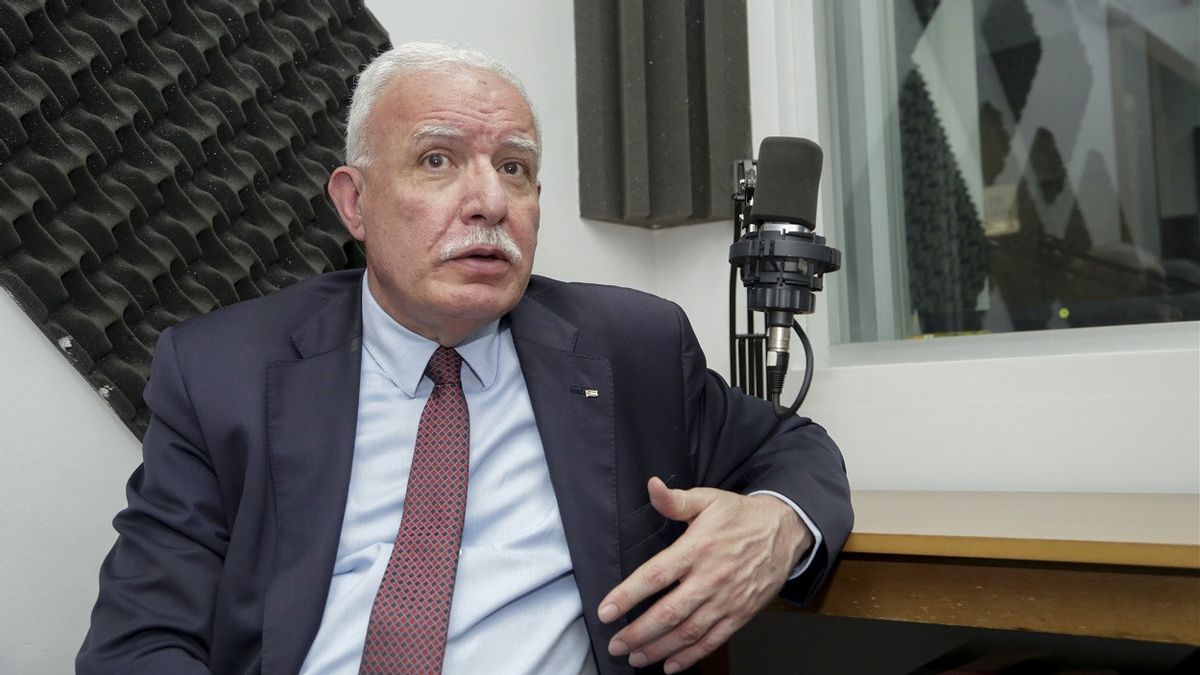JAKARTA - Palestinian Foreign Minister Riyad al-Maliki on Monday demanded the end of Israel's occupation of Palestinian territory, in the inaugural session of the International Court (ICJ) discussing Israel's occupation.
Foreign Minister Al-Maliki accused Israel of making Palestinians victims of decades of discrimination and apartheid, accusations Israel denies, arguing they only had a choice of refuge, conquest, or death'.
"The only solution consistent with international law is to end this illegal occupation immediately, unconditionally and in total," he said.
Furthermore, Foreign Minister al-Maliki repeated allegations of Israeli genocide in Gaza, a charge Israel has firmly rejected at a separate trial in a court based in The Hague, the Netherlands.
"The genocide that has occurred in Gaza is the result of the impunity and inaction of actions for decades. Ending Israel's impunity is a must for moral, political and legal," said al-Maliki.
As previously reported, more than 50 countries and international organizations will deliver speeches before judges to give their opinions.
Among the countries scheduled to participate in the hearing are the United States, China, Russia, South Africa, Indonesia and Egypt. Israel itself will not, even though it has sent written observations.
This trial is in accordance with the UN General Assembly's request to the court in 2022, to provide advice, or non-binding opinions regarding Israel's occupation.
The trial will be held until February 26. After that, the judge is estimated to take several months to consider before issuing an advisory opinion.
It is known that Israel captured the West Bank, Gaza and East Jerusalem, the historic Palestinian territories Palestinians wanted to make the country, in the 1967 war. They withdrew from Gaza in 2005, however, along with neighboring Egypt, still controls its borders.
This is the second time the UN General Assembly has requested the opinion of ICJ advisers, also known as the World Court, regarding the occupied Palestinian territories.
In July 2004, the court ruled that Israel's dividing wall in the West Bank violated international law and had to be dismantled, even though the wall was still standing today.
The judges were asked to review Israel's "residential, settlement and annexation, including actions aimed at changing the demographic composition, character and status of Jerusalem's Holy City, as well as the implementation of laws and discriminatory measures."
The General Assembly also asked the panel of 15 ICJ judges to advise on how these policies and practices affect "the status of the occupation law" and what legal consequences arise for all countries and the United Nations of this status.
The trial process this time was separate from the genocide case brought by South Africa to the World Court against Israel for alleged violations of the 1948 Genocide Convention in Gaza.
The English, Chinese, Japanese, Arabic, and French versions are automatically generated by the AI. So there may still be inaccuracies in translating, please always see Indonesian as our main language. (system supported by DigitalSiber.id)













